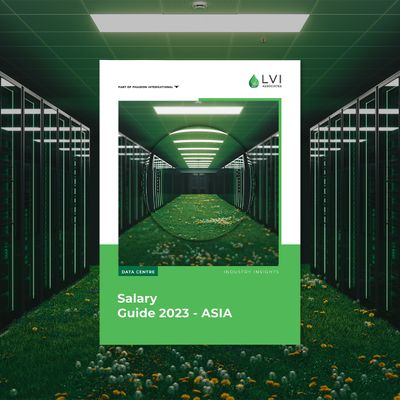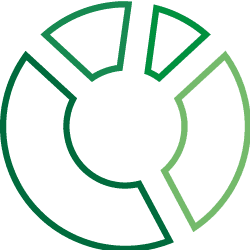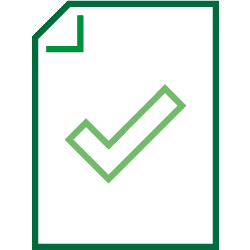civil
Be interview ready – offshore wind roles
Discover 10 tips on how to prepare for an offshore wind interview Preparing for a job interview for an opening in the offshore wind industry requires thorough research, an understanding of the industry's unique challenges and requirements, and showcasing your relevant skills and experiences. As talent experts in the energy and infrastructure space, we’ve compiled a checklist for you to use to simplify this process. Here are some reminders to help you prepare effectively and put your best foot forward: 1 - Research the company and the offshore wind industry: Gain a comprehensive understanding of the company you are interviewing with, including their projects, mission, values, and recent achievements. Additionally, research the offshore wind industry, including current projects in your region, market trends, regulatory frameworks, and key players. 2 - Review the job descriptionCarefully analyze the job description to identify the key skills, qualifications, and responsibilities required for the role. Note specific technical knowledge or certifications mentioned and consider how your own experiences align with the requirements. 3 - Showcase your knowledge and experienceDemonstrate your knowledge of the offshore wind industry during the interview. Highlight any relevant experiences you have, such as working on wind energy projects, knowledge of wind turbine technologies, or experience with offshore operations and maintenance. Share specific examples of your contributions and accomplishments in similar roles or projects. 💡 Added tip! If you come from a different professional background but have landed an interview at an offshore wind-focused company, it's a great opportunity to highlight your transferable skillsets to offshore infrastructure. This is especially useful if you have experience in marine operations, structural engineering, high-voltage electrical engineering, or substation experience. Make sure to shine a light on skills like working with development frameworks, handling grid connections, tackling installation and commissioning tasks, being well-versed in health, safety, and environment (HSE) practices for marine operations, managing contracts, navigating LTSAs and FIDIC contracts, and obtaining permits. Demonstrating your proficiency in these areas will showcase your diverse skillset and show that you're a seasoned professional with plenty of relevant skills for the company. 4 - Familiarize yourself with offshore wind challenges Be prepared to discuss the unique challenges associated with offshore wind projects, such as challenges in the local supply chain, environmental impact assessments, grid integration, or weather conditions. Showcase your ability to handle these challenges by recounting examples of problem-solving or innovative approaches you have taken in previous roles or projects. 5 - Understand safety and environmental considerationsOffshore wind projects prioritize safety and environmental considerations. Familiarize yourself with relevant safety standards, regulations, and practices, such as those set by different regional governance. Highlight any safety certifications or training you have completed and demonstrate your commitment to maintaining a safe and sustainable work environment. 6 - Brush up on technical skills and industry terminologyReview technical skills and knowledge relevant to the offshore wind industry, such as wind turbine technology, power generation, electrical systems, or project management. Be prepared to discuss industry-specific terminology and concepts, showcasing your understanding of the technical aspects of the field. 7 - Prepare examples of problem-solving and teamwork Be ready to share examples of how you have solved problems, overcame challenges, and have worked effectively in teams. Offshore wind projects often require collaboration with multidisciplinary teams, so highlight your ability to work well in such environments and contribute to achieving project goals. If you have experience working with diverse individuals or overseas teams, make sure you’ve gone through these projects in your head to keep them at the top of your mind. The offshore wind industry is a dynamic and quick-moving one. Being decisive and efficient in decision-making and communication are valued soft skills. 8 - Anticipate behavioural and situational questionsPrepare for behavioural and situational interview questions that assess your competencies and fit for the role. Practice answering questions that demonstrate your ability to handle pressure, work in diverse teams, communicate effectively, and manage conflicts. 9 - Have questions ready for the interviewerPrepare thoughtful questions to ask the interviewer about the company, the specific role, project details, and career development opportunities. This shows your interest in the company and your proactive approach to understanding the role and its expectations. 10 - Conduct mock interviews and seek feedbackPractice mock interviews with a friend or mentor to refine your responses and gain feedback. This will help you improve your confidence, clarity of expression, and ability to effectively convey your skills and experiences. Finally... Remember to dress professionally, arrive early, and maintain a positive and confident demeanour during the interview. By thoroughly preparing and showcasing your knowledge, skills, and enthusiasm for the offshore wind industry, you can position yourself as a strong candidate for the role. At LVI Associates, we are dedicated to empowering energy and infrastructure professionals to achieve their career goals. By taking the time to truly understand your aspirations, we provide you with unparalleled opportunities in the industry that align with your ambitions. Unlock the door to your future by exploring our latest roles. Register with us today and take the step towards your next career move.
Read More








